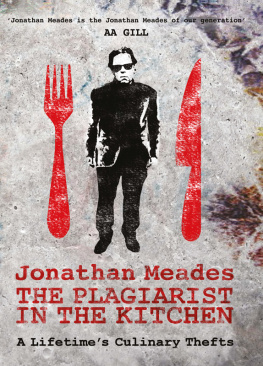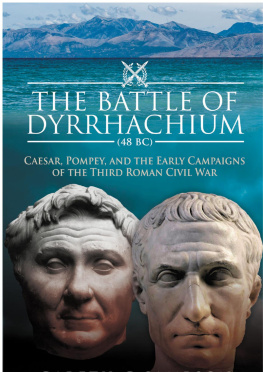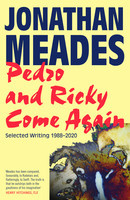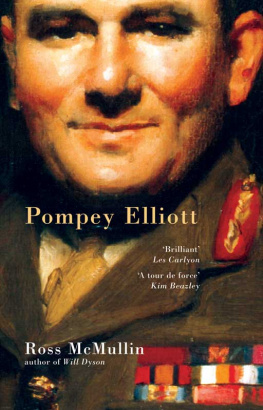PRAISE FOR POMPEY
If Meades was a racehorse youd be calling for a stewards enquiry. Theres something in his feed which definitely gives him the lot. Hes working at terribly high octane Meades has taken on a lot of the set pieces of the novel. Hes taken on wonderful challenges. Hes made Belgium interesting. Hes done a fabulous Heart of Darkness take on the pygmy hunting in Africa. Hes handled a staple of the proletarian novel, which is the abortion scene, which goes through from James Curtis in the s to Saturday Night and Sunday Morning and he does that beautifully Meades handles the whole sexual side of it like William Burroughs by way of Beryl Cooke
Iain Sinclair, Kaleidoscope
Disgusting and brilliant Written with relentless energy and rhythm, phrase after phrase of the novel is highly crafted the book is less wrought than spewed: a torrent of obsessive, angry, imaginative fireworks. Among the influences on Meadess style are the time-shifting principles of quantum physics, street slang and, with parenthetical page references throughout, literary deconstruction. The prose, constantly preening itself in its own dark mirror, is the authors greatest achievement and should earn Meades justifiable comparison to such modernist novelists as James Joyce and Louis-Ferdinand Celine, Thomas Pynchon and Martin Amis While Meadess novel risks imagining the unimaginable and speaking the unspeakable, it is not gratuitously shocking. Meades seems to evoke all of the disenchantment of recent history with a narrative that withstands the fictional realities of a century which saw the Holocaust and the invention of the bomb. He embraces his own disillusionment refusing to create a single sympathetic character. What is the point of good taste in an irreversible, out-of-control, wicked world?
Paul Spike, Vogue
With its mutilations, voyeurism, in-jokes, phantasmagoric idiolect and cruel humour, this is a harrowing and quite extraordinary book It is lurid and ingenious but so perverse you could get to love it
David Profumo, Daily Telegraph
Pompey has a weirdly elegant architectonic to it, a sense of its own shape that is best got at by reading long and fast. And although it may sound cold and cynical, Pompey s dominant mood is rather dreamy, sad and puzzled, a feeling partly created by having Meades himself appear in his narrative as a heartlessly normal suburban middle-class thug Meades is interested in plumbing the mythological depths of lower-class southern English culture: it nouves and its wide-boys, its fleshpots and its gangs, the aspirations and the abjections hidden behind net curtains on pea-souped streets of rotting brick
Jenny Turner, Guardian
A vast, deranged epic which demands of its reader furious attention this book wont be explained: it is as much about pulling and twisting language as anything else (Englishness, grossness, sensation, nostalgia) It demands to be re-read the moment you finish it, if only because much of the first page is only explained by the last. Sometimes the relentless style bewilders and overwhelms, but there is more invention in a single page of Pompey than many young British novelists manage in fifty
Richard Preston, Harpers and Queen
Any page comes crammed with more freewheeling invention than many writers manage in a lifetime
Tom Shone, Sunday Times
As if in some sci-fi story which posits a world where the Boston Tea Party had never taken place, Pompey exists entirely in England and speaks an untainted English, or Anglo-Meadelish at least, even when it travels to Europe or Africa. The vernacular is pilfered from every class and condition of Englishman bless his chops, do his tronc, bint, jankers, a list of sexual euphemisms which could be extracted and published separately as an addendum to Partridge and every age from the thirties to the fifties, stopping only at that coffee bar period when we started swapping our homespun neologisms for the flashier Yankee versions. In anyone elses hands a money-spinning revivalist preacher would look across the Atlantic to Jim Bakker or Billy Graham for its influence: only Meades would find it in Max Miller
John Diamond, The Times
BY THE SAME AUTHOR
Filthy English
Peter Knows What Dick Likes
Incest and Morris Dancing
The Fowler Family Business
Museum Without Walls
Foreword
With the publication of Pompey , the outrageously talented Jonathan Meades established himself as one of the funniest and truest writers we have. No one understands England better than Meades, its seediness, squalor and stylelessly corrupt hypocrisy, its eccentric wit and scabrous vitality. He has done for Portsmouth (Portsmouth, for heaven's sake) what Baudelaire did for Paris, Joyce for Dublin and Paul Bowles for Tangier, but in a style entirely his own and entirely suited to the hilariously seamy post-war world his novel inhabits. His stunning prose can pun, allude, shock and entertain without ever seeming to cry out for admiration. So I will cry out and admire it. One of the very best and most absurdly underrated novels of the nineties, it should have won a sackful of awards. As Shakespeare so prophetically cried: O you hard hearts, you cruel men of Rome, Knew you not Pompey?
Stephen Fry
Introduction to the 20 th Anniversary Edition
An introduction to the re-publication of a novel with which many will be unfamiliar should seek to achieve two aims. First, it should tell the potential reader why the book is worth reading. Second, it should seek to give a flavour of what the book is about: without giving away the story, or rendering it pointless to persist with it. In relation to the second point, perhaps it helps to give one supporting argument relevant to the first. Even if the plot of Pompey were to be revealed here, the book would still demand to be read because of its originality, its attention to truth, its verve, its radicalism and, above all, its authors exhaustive and almost exhausting command of language and metaphor.
Meades himself has several walk-on parts in Pompey , in one of which he sodomises a casual female acquaintance at a teenage party. To observe that that is one of the less disgusting features of a frequently distasteful narrative gives you the measure of the book. As the late News of the World used to say, all human life is there; and with it, every aspect of that life, however taboo, however extreme in its repellence. But then this is an epic of the South Country, stretching over thirty years (and this is just in its English locations) from Wiltshire to Southampton and finally to the eponymous city itself, Portsmouth, a place brim-full of freaks and monsters and restless social mobility for whom dystopian is an inadequate adjective.
Why read Pompey ? It is a work of genius. It is one of the outstanding works of English fiction of the last half-century. It is unremittingly disgusting, but unremittingly entertaining. It is cruel in its humour, but accurate in its depictions, whether of character or of atmosphere. It contains penetrating insights into the nature of being, and into the nature of our culture. In the quality of writing and innovativeness of plot and character it is apart from all other novels of the last half-century. It is as well that no serious person measures literary merit by Booker prizes and the like, for if it were so then Pompey would have had to win scores of them. It is one of the last truly great novels of the 20 th century, and for it not to be better known is perhaps not least because of the way in which it cocks its leg, and then squats, over what passes for literary sensibilities in our culture.












